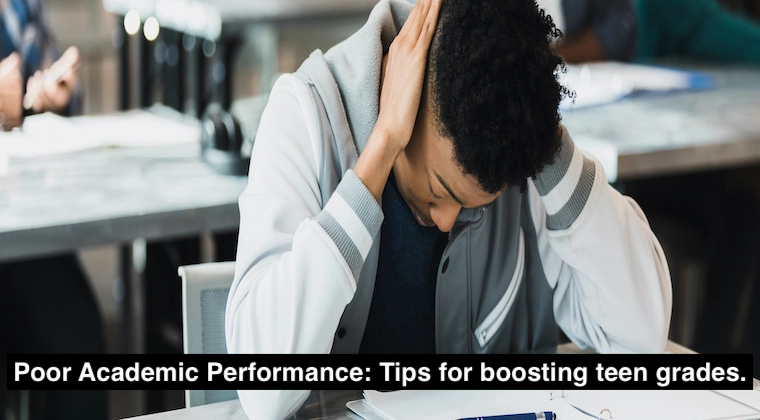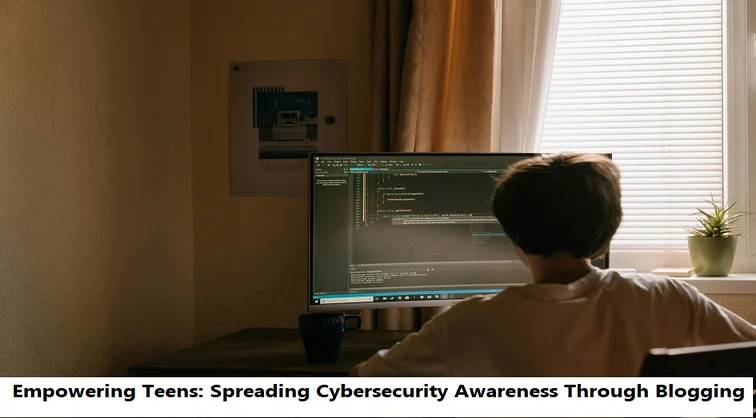+1 845 259 2974 (11 a.m to 7 p.m CST)
Poor Academic Performance: Tips For Boosting Teen Grades

Teenage years can be challenging, both for the teens and their parents. Along with the physical, emotional, and social changes, academic challenges might also surface. If your teen's grades have taken a hit, don't despair. There are effective ways to assist and uplift them.
But first, parents need to understand why this is happening. Kids often get poor in academics because of peer pressure, poor mental health, or the issues that they are facing in their teen years. Parents need to give proper attention to the changing habits, and emotions of the teens. Parental controls are also very effective when it comes to knowing what is happening with your teens.
Possible Reasons for Poor Academic Performance in Teens
Certainly, the reasons for poor academic performance in teens can be multifaceted and sometimes complex. Here are some potential reasons:
- Lack of Motivation: Not finding a subject or school in general interesting can lead to disengagement and subsequently poor performance.
- Learning Disabilities: Conditions such as dyslexia, ADHD, or other cognitive disabilities can impede a teen's ability to grasp certain subjects or maintain attention in class.
- Emotional and Psychological Issues: Stress, depression, anxiety, low self-esteem, or personal traumas can drastically affect a teen's academic abilities.
- External Distractions: The rise of technology, especially smartphones, can be a source of constant distraction for teenagers, pulling their focus away from academic tasks.
- Peer Pressure: The desire to fit in or avoid being labeled a "nerd" can sometimes deter students from performing well or engaging fully in their studies.
- Poor Study Habits: Inefficient or non-existent study routines can lead to poor retention and understanding of material.
- Physical Health Issues: Chronic illnesses, poor nutrition, or lack of sleep can affect concentration and cognitive function.
- Family Issues: Domestic disturbances, financial problems, or a lack of support at home can divert attention from studies.
- Ineffective Teaching Methods: Not all teaching methods suit every student. Some teens may struggle because the teaching style doesn't match their learning style.
- Lack of Resources: Not having access to necessary study materials, books, or a quiet space to study can hinder academic performance.
- Substance Abuse: Experimentation with drugs or alcohol can cloud judgment, reduce motivation, and result in decreased academic performance.
- High Expectations: Paradoxically, putting too much pressure on teens to perform can lead to stress and burnout, causing grades to plummet.
- Skipping Classes: Regular absenteeism can result in missed lessons and falling behind in the curriculum.
- Lack of Interest in the Subject: Not every subject appeals to every student. A lack of interest can reduce the motivation to study or pay attention during classes.
- Social Challenges: Bullying, difficulties in making friends, or issues in romantic relationships can take a mental toll, reducing focus on academics.
Addressing the root cause of poor academic performance requires a holistic approach, considering both external and internal factors, to provide the necessary support and interventions.
How to Deal with Poor Academic Performance in Teens:
For worried parents, here are some of the effective tips to deal with poor performance of teens in studies.
1. Open the Communication Channels
Engage in open and non-judgmental conversations with your teen. Understand the root causes behind their poor performance. Is it a lack of understanding, distraction, peer pressure, or maybe personal issues?
2. Set Realistic Goals
Ensure that expectations are realistic and achievable. Setting very high standards can backfire, causing stress and anxiety. On the other hand, setting smaller, achievable goals can boost confidence and motivation.
3. Hire a Tutor or Seek Peer Help
Sometimes, all your teen needs are a little extra help. Hiring a tutor or asking a knowledgeable peer for help can bridge the knowledge gap and help understand complex topics.
4. Establish a Study Routine
Establishing a regular study schedule can help instill discipline. Make sure the study environment is conducive, free from distractions, and comfortable.
5. Utilize Learning Apps and Online Resources
There's a plethora of online resources, from Khan Academy to Coursera, which provide lessons on a vast array of subjects. Encourage your teen to use these platforms to supplement their learning.
6. Parental Control Apps: The Digital Study Assist
Today's teens often possess smartphones and tablets. While these devices can be a source of distraction, they can also become tools for academic success with the right guidance. This is where parental control apps come into play.
- Monitor Screen Time: These apps can help set a limit on how much time your teen spends on non-academic activities, ensuring they don't overindulge in games or social media.
- Block Distracting Apps: Temporarily blocking access to distracting apps during study hours can help your teen focus.
- Safe Browsing: Ensure they're accessing only educational and safe content online by filtering out inappropriate websites.
- Set Rewards: Some parental control apps allow parents to set rewards for tasks completed, turning study time into a challenge your teen might enjoy.
7. Encourage Extracurricular Activities
All work and no play can make anyone dull. Encourage your teen to engage in extracurricular activities that can enhance their skills and knowledge, be it a science club, debate team, or sports.
8. Address Personal Issues
At times, poor academic performance might be due to personal issues like low self-esteem, bullying, or relationship troubles. It's crucial to address these underlying problems, possibly with the help of counselors or therapists.
9. Recognize and Reward
Acknowledge your teen's efforts and improvements. A reward system or simple words of encouragement can work wonders for their motivation.
10. Stay Involved
Regularly attend parent-teacher meetings, stay updated with your teen's progress, and show genuine interest in their academic life. Your involvement can provide the necessary support and direction.
Improving your teen's academic performance requires a combination of understanding, structure, and the right resources. With consistent effort, open communication, and the smart use of technology like parental control apps, you can guide your teen towards academic success. Remember, every child is unique, and what works for one might not work for another. It's about finding the right balance and approach tailored to your teen's needs.

















